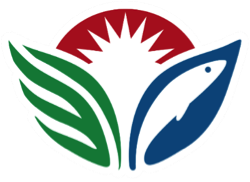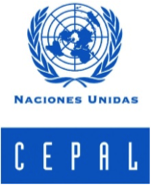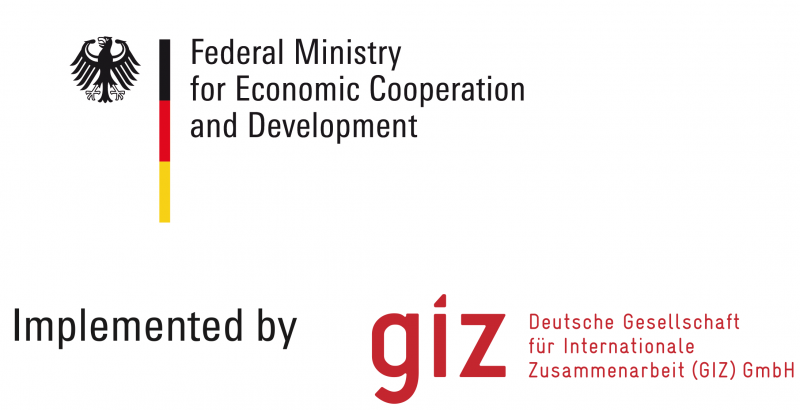Latin America and the Caribbean Regional Workshop on Environmental Accounting for Policy Analysis



Bogota, Colombia, March 16-17, 2016
This workshop was organized by the Statistics Division of the UN Economic Division for Latin America and the Caribbean (ECLAC), the World Bank-led partnership Wealth Accounting and the Valuation of Ecosystem Services (WAVES), and the Deutsche Gesellschaft für Internationale Zusammenarbeit GmbH (GIZ).
Environmental accounting under the methodological framework of the System of Environmental-Economic Accounts (SEEA) 2012 has been recognized as an important tool for evidence-based policy making that takes into account the effects of economic activities on the environment and vice versa. In addition, it has been identified as one of the useful frameworks for the purpose of monitoring and reporting for the UN post-2015 development agenda in support of inclusive, people-centered sustainable development.
Following-up on past activities in the Latin American and the Caribbean Region (LAC), the workshop’s objective was to provide a platform for countries to share their experiences with SEEA implementation with a focus on the institutional set-up and the use of the accounts for policy making. By means of interactive sessions, participants exchanged experiences on SEEA implementation, learned best practices in LAC and heard from experts on environmental accounting. In addition, the workshop provided the opportunity to discuss the objectives and activities of a forthcoming Regional Collaboration Program.
The workshop gathered 28 participants from 15 countries: two participants from each country. One country participant represented the “producer side” of the accounts (NSOs, CB, etc., depending on the country), and the other represented the “user side” (Ministry of Environment, Planning Department etc., depending on the country). Additionally, experts from WAVES, ECLAC, GIZ and academia attended.
Feature Story: Latin American Countries Exchange Experience on NCA
Agenda
* Presentations are available by clicking on the underlined agenda items. Note that some sessions did not use powerpoint presentations.
|
DAY 1, March 16 |
||
|
Time |
What |
General Topic |
|
8:00-8:30 |
Registration |
|
|
8:30-09:40 |
Inauguration and Ice Breaker |
|
|
9:40-10:20 |
Session 1: UNSD Presentation: Introduction to the SEEA and current developments |
Experience sharing on implementation of the SEEA in the LAC region |
|
10:20-10:40 |
Coffee break |
|
|
10:40-11:20 |
Session 2: Where do countries stand?(Institutional background and level of implementation) |
|
|
11:20-12:45 |
Session 3: Pair-up of advanced and starting countries for experience sharing on implementation |
|
|
12:45-14:00 |
Lunch |
|
|
14:00-15:10 |
Session 4: Experience sharing on institutional set-up |
|
|
15:10-15:30 |
Coffee Break |
|
|
15:30-16:00 |
Session 5: Need for support for SEEA implementation |
|
|
16:00-17:00 |
Session 6: Use of environmental accounts for policy making Dr. Michael Vardon, Australian National University Bolivia: Dr. Lykke Andersen Eg, Instituto de Estudias Avanzados en Dessarollo |
|
|
DAY 2, March 17 |
||
|
8:45-09:00 |
Intro Day 2 |
Use of NCA for policy making |
|
9:00-10:00 |
Session 7: Use of environmental accounts for policy making – country examples Colombia: Juliana Barrientos Lopez, Departemento National de Planeación Guatemala: Hector Antonio Tuy, Instituto de Agricultura, Recursos Naturales y Ambiente |
|
|
10:00-10:20 |
Coffee break |
|
|
10:20-11:30 |
Session 8: Producers and users of information – the crucial linkage |
|
|
11:30-12:30 |
Session 9: Round table on policy use, Dr. Michael Vardon, Australian National University |
|
|
12:30-13:45 |
Lunch |
Discussion of the LAC RCP |
|
13:45-14:40 |
Session 10: Presentation on the LAC Regional Cooperation Program (RCP) |
|
|
14:40-15:30 |
Session 11: Discussion on the LAC Regional Cooperation Program
|
|
|
15:30-16:00 |
Coffee Break |
|
|
16:00-17:00 |
Session 12: Conclusion and Way Forward |
|
